'My sister was killed 20 years ago - I'm still angry'
The brother of a woman who was killed on 7/7 says he cannot forgive those behind the bomb attacks, two decades on.
On 7 July 2005, 29-year-old Laura Webb was on her way to work in central London when she was killed - one of 52 people who died in coordinated attacks on the city that day.
More than 700 people were also injured, as suicide bombers detonated explosives on three Tube trains and a bus.
Speaking to BBC News ahead of the 20th anniversary of the attacks, Rob Webb, Laura's older brother, said 7/7 was "an attack on all of us" and something that should never be forgotten.
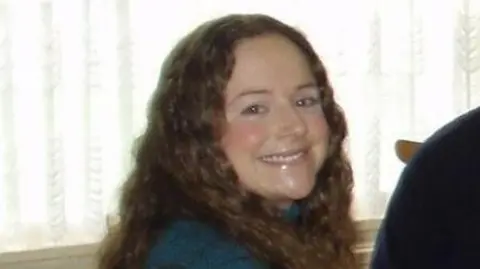 Family handout
Family handout"I remain angry," said Rob, who lives in Pentyrch near Cardiff.
"Laura was denied the opportunity of a life that me and my brother have been lucky enough to have - somebody decided to take that away from her.
"The pain never goes away - I think of her every day."
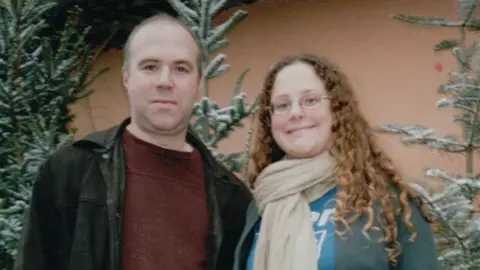 Rob Webb
Rob WebbRob said he still recalled how the day Laura died had begun like any other, but became an "extraordinary day for all the wrong reasons".
At around 08:50 BST, three deadly explosions went off underground.
Mohammed Sadiq Khan detonated his device on a Tube train near Edgware Road, Shehzad Tawnier at Aldgate and Germaine Lindsay at Russell Square.
They were the first suicide attacks on UK soil but that would not become clear until much later.
The chaos and confusion of the initial moments saw the blasts incorrectly reported as power surges by officials and the transport system went into gridlock.
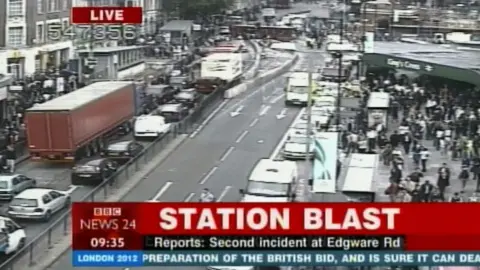
At a time without breaking news alerts, Dr Andrew Dearden, then a GP in Cardiff, was completely unaware of what was happening as he attended a meeting at the British Medical Association (BMA) headquarters at Tavistock Square in London.
But at 09:50 a fourth bomb was detonated by Hasib Hussain - this time on a bus - just outside the building Dr Dearden was sat in.
The large sound was something Dr Dearden said he could never forget, but he had no idea what he would face as he ran out of the building.
"As I came down the stairs, I looked towards my right about 50 yards (45m) and saw the bus," he said.
"The back of the bus looked like someone had actually stepped on it - it had been crushed down and the roof was almost gone."
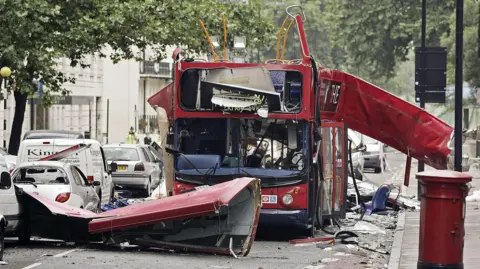 Dylan Martinez/Reuters/Pool/PA
Dylan Martinez/Reuters/Pool/PA"I ran across the road, and as I was running I noticed the spread of the debris, how far it had gone from the bus," said Dr Dearden.
"And then I saw a lady's purse and then I saw a dismembered limb, some distance from the bus, and it was then that I kind of realised it wasn't a normal event."
Dr Dearden remembers the lack of sound in the time that followed.
"You would kind of expect the sound of terror, fear, anxiety, yet they didn't seem to be there," he recalled.
A group of doctors, including Dr Dearden, began to assess the injured and stabilise patients.
At one point, he recalled concerns that there could be another bomb in the area, but he said "nobody moved" and the work continued.
'Six months of A&E in three hours'
Dr Dearden said treating the injured at the scene was like seeing "six months of A&E in about three hours" - overwhelming for even the most experienced of medics.
"It was partly the sheer number of people involved, it was the degree of injuries we were dealing with but also recognising that some people were injured to the extent that we wouldn't be able to help them, even if we had them in a high-tech A&E department."
By 10:21, the Metropolitan Police had confirmed "multiple explosions".
Rob was trying desperately to contact his sister Laura, who was a PA based in Paddington, but she never replied.
He travelled to London alongside family and friends to begin a frantic search.
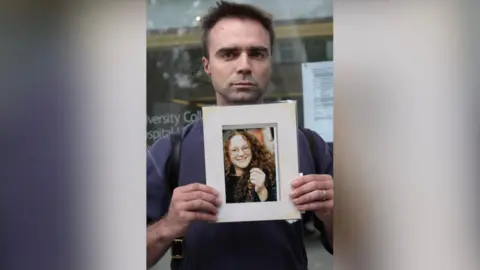 PA
PA"Part of you is trying to remain optimistic, part of you is trying to be really pragmatic and part of you is reflecting - why the hell is this happening to us?" Rob recalled.
"But there was always that hope and for the first few days I don't think that was unrealistic - 20 years ago, things were very different."
It would be a whole week before they had confirmation that Laura had been killed that morning.
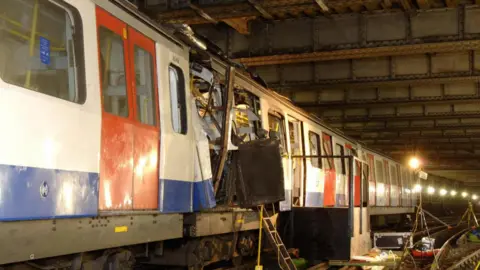 Metropolitan Police
Metropolitan PoliceLaura was one of six people who died at Edgware Road, alongside seven at Aldgate, 26 at Russell Square and 13 at Tavistock Square.
770 people were injured, many in life-changing ways.
"It was an attack on us all - even if you weren't directly involved, it was as much an attack on you, as it was on us," said Rob, who said he had struggled to forgive, despite his Christian upbringing.
"We are called upon to forgive and I have not been able to forgive, not just the man who killed my sister but any of the other bombers."
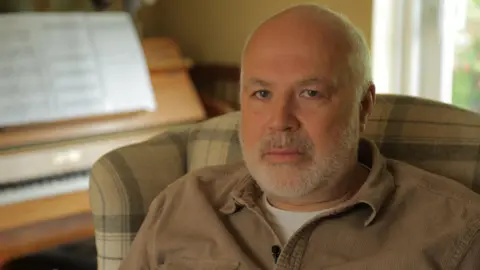
To mark the 20th anniversary of 7/7 there will be a service of commemoration at St Paul's Cathedral and Rob plans to be in London with his family.
"It was, in many respects, a long time ago but in other ways, it wasn't a long time ago and we as a society are still having to deal with that particular strand of terrorism," he said.
"It is important to understand what happens and the human cost - how we as a society respond and, how we as a society hopefully can become more vigilant in the future and prevent this kind of this thing from happening."
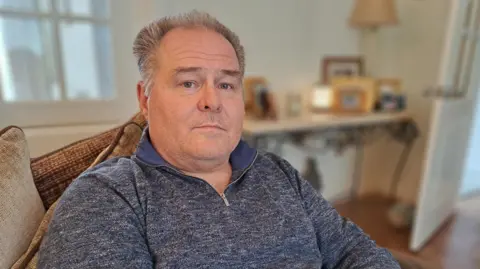
Dr Dearden has now retired as a GP but said he still remembered the people from that day - those that he treated and those who went "above and beyond" to help.
"There were a lot of people who put themselves at risk," he said, becoming emotional as he recalled the efforts of his BMA colleagues and emergency workers.
"It's vital we remember the good and what people did in response - there was a lot of good that happened on that day which could get lost if we only remember the bad."
